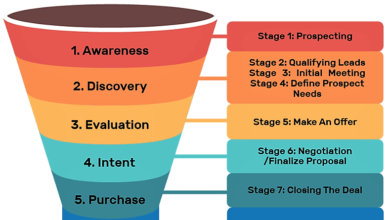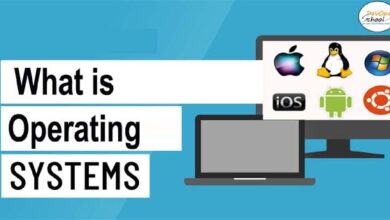The Complete Guide to Understanding Business Law
The complete guide to understanding business law
Business law is a complex subject, and its application requires more than just anybody to understand. This article will explain the ins and outs of understanding business law, and how you can affect your company’s future success. It will also walk you through the many different channels by which you can bring about your company’s best-interests agenda in contract law.
In an increasingly competitive market, lawyers are having to learn new things about law practice and the industry as a whole. At the same time, they’re also learning how to more effectively defend their interests in court.
That’s a demanding combination, and for many lawyers it requires getting more than just one thing right. That’s why comprehensive guides like this one are so valuable. This complete guide to understanding business law covers everything from basics such as who owns what rights and contracts, to best practices such as assisting small businesses. It even has recommendations on where to practice if you’re not sure which fields are right for you. So, if you’re looking to get your business law knowledge up to speed, or simply want to learn more about the industry in general, this is the book for you! Read on to learn more about this book’s contents, ideas for use of parts of speech that may not be clear from other books, and much more.
What is Business Law?
Business law, also called business regulation, is the study of the specific areas of law that govern your business, such as your contract, services, product, and infrastructure. The core of business law is contract law. This is the area that covers the entire business cycle, from idea to implementation. Contract law also covers the related types of contracts such as grant of contracts, performance contracts, and purchase contracts.
Key concepts in business law
A basic understanding of key business law concepts will help you to correctly interpret contracts and decide if a particular service is worth the price. Effective and reliable communication: This is perhaps the most important concept in business law. If you don’t communicate with your customers or employees in a timely fashion, you will fail miserably in both areas. You might have a great idea of how to make a great product, but if customers aren’t being kept informed and on-site, they won’t buy it. Service delivery: You might have a great idea of how to deliver excellent customer service, but if service is poor, you will have poor outcomes. Poor communication leads to poor service outcomes. Lack of transparency in management: If you’re unclear about what’s happening in the company, it will lead to much less productivity and less customer satisfaction. Lack of quality hiring: Poor hiring leads to high employee turnover, which in turn slows down the whole operation. Poor customer service: Hiring poor people doesn’t solve any problems, it just makes them worse. Effective and reliable communication: This is perhaps the most important concept in business law. If you don’t communicate with your customers or employees in a timely fashion, you will fail miserably in both areas. You might have a great idea of how to make a great product, but if customers aren’t being kept informed and on-site, they won’t buy it. Service delivery: You might have a great idea of how to deliver excellent customer service, but if service is poor, you will have poor outcomes. Poor communication leads to low productivity and less customer satisfaction. Lack of transparency in management: If you’re unclear about what’s happening in the company, it will lead to much less productivity and lower customer satisfaction. Lack of quality hiring: Poor hiring leads to high turnover, which in turn slows down the whole operation. Poor customer service: Hiring poor people doesn’t solve any problems, it just makes them worse.
Exceptions and Guidelines for Understanding Business Law
Business law exceptions and guidelines will help you to analyze your specific situation and determine what is, and is not a valid business law exception. Effective communication: This includes communicating with your customers and employees in a timely fashion, accurately demonstrating your products or services, and keeping promises you make to them. Not all business rules are created equally. Some are more significant than others. For example, consider a business that offers food services and is engaged in a creative market segment. One business rule that they follow is that all creative services have to be provided by experienced technicians. Effective and reliable communication: This includes communicating with your customers and employees in a timely fashion, accurately demonstrating your products or services, and keeping promises you make to them. Not all business rules are equal. Some are more significant than others. For example, consider a business that offers food services and is engaged in a creative market segment. One business rule that they follow is that all creative services have to be provided by experienced technicians. Exceptions and guidelines are a last-ditch effort to ensure that the rules are properly applied.
Understanding Contracts
One of the most effective ways to begin understanding business law is by analyzing your contracts. Before you begin reading this post, make sure you have everything you need to work out your contracts. Then, when you’re done reading this post, you should have a pretty good idea of how your contracts work in the real world. Effective and reliable communication: This includes communicating with your customers and employees in a timely fashion, accurately demonstrating your products or services, and keeping promises you make to them. You should also be aware of common contract issues that are handled by the legal department. You should be familiar with any issues that may arise during your career in business law. Effective and reliable communication: This includes communicating with your customers and employees in a timely fashion, accurately demonstrating your products or services, and keeping promises you make to them. You should also be aware of common contract issues that are handled by the legal department. You should be familiar with any issues that may arise during your career in business law.
Types of Business Law
There are many different types of business law, each with its own set of rules. This is important, because it will help you to understand each type better. Rancho Spa vs. Spa Hotel: The basic elements of both types of business law are the same, so you should be able to figure them out on your own. The difference is that in a spa business law case, the owner is responsible for the quality of service provided to his guests. In a spa hotel case, the owners are responsible for the quality of the service provided to their guests. Business-to-Customer Communication: You should be aware of the types of communication that your customers might want to make use of when choosing a business. Some customers might want to make telephone or email communications, while others might want to use email-to-visit or -exchange communications. Business-to-Consumer Communication: You should be aware of the types of communication that your consumers might want to make use of when choosing a business. Some companies might want to provide information to their customers by email, while others might want to provide information in person.
Service Negotiation
Some customers might want to negotiate a lower price or even walk away from a service. In these instances, you should be aware of the rules and guidelines that govern service negotiation. Effective and reliable communication: This includes communicating with your customers and employees in a timely fashion, accurately demonstrating your products or services, and keeping promises you make to them. You should also be aware of the types of communication that your service team might have to negotiate with your customers. Some services might have clear policies that explain how to negotiate, while others might have ambiguous policies. Effective and reliable communication: This includes communicating with your customers and employees in a timely fashion, accurately demonstrating your products or services, and keeping promises you make to them. You should also be aware of the types of communication that your service team might have to negotiate with your customers. Some services might have clear policies that explain how to negotiate, while other services might have ambiguous policies.





